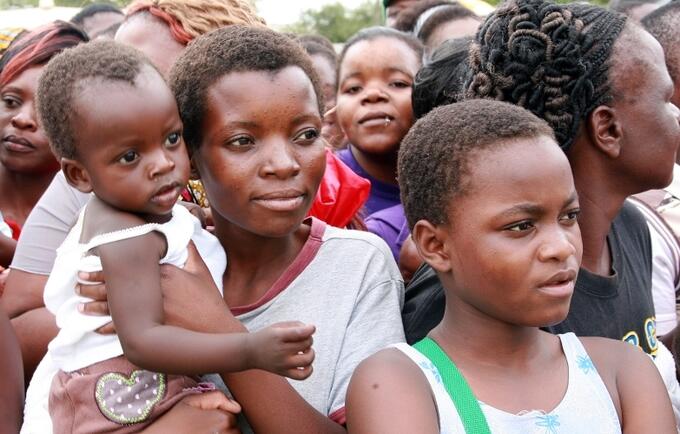MANICALAND, Zimbabwe—At the vocational training centre where he is studying, there is “a lot of abuse” in the form of sexual harassment, often perpetrated by young men, says Elijah Chipise, 20.
“There is clear evidence of sexual harassment, which is not reported or documented due to fear and lack of knowledge,” he says.
There is clear evidence of sexual harassment, which is not reported or documented due to fear and lack of knowledge.
Mr. Chipise is a peer educator at Magamba Vocational Training Centre in Manicaland, a province targeted by the Spotlight Initiative. Under this initiative he received two days’ intensive training on gender-based violence (GBV) and harmful practices, as one of 15 peer educators.
“This training has made it possible to raise awareness within the institution and also among youth within our communities,” he says. “We can now support the most vulnerable and empower them to speak out.”
Munashe Grey, 20, a motivational speaker who dedicates most of her time to young people, wanted to tackle GBV but she did not feel adequately informed to discuss the subject. Also a student at Magamba Vocational Training Centre, she attended the same course.
“This training has equipped me to respond to questions on identification of abuse and places of safety and support,” she says. “Young women sometimes have difficulty in identifying abuse, and when they [do] know, they do not always know where to get help.”
This training has equipped me to respond to questions on identification of abuse and places of safety and support.
The training was conducted by Students and Youth Working on reproductive Health Action Team (SAYWHAT) with support from partners, including Musasa Project and Magamba Health and Life Skills department, under the Spotlight Initiative project.
Magamba Vocational Training Centre in Manicaland province is one of 10 tertiary institutions being targeted under the initiative, which aims to end all forms of GBV and harmful practices and promote the sexual and reproductive health and rights (SRHR) of women and girls. The goal of the project is to end violence against women and girls in the targeted tertiary institutions.
With support from UNFPA, the United Nations Population Fund under the Spotlight Initiative, the objectives of the SAYWHAT training were to improve the peer educators’ knowledge of GBV and harmful practices. It aimed to capacitate students as champions and agents of change in the eradication of GBV and harmful practices, as well as mobilizing female and male students to join the social movement of ensuring that women and girls can realize their full potential in a violence-free, gender-responsive environment.
The training clarified reporting and support structures. The trainees were sensitized on the importance of reporting and ensuring access to GBV services, including access to health services within 72 hours, which is critical for sexual violence, Ms. Grey says.
It also gave peer educators an opportunity to propose activities they can implement on campus, to raise awareness and put an end to sexual and gender-based violence and harmful practices.
The Zimbabwe Spotlight Initiative country programme targets 11 million beneficiaries directly and indirectly, particularly rural women and girls, women and girls living with disabilities, and women living with HIV.
Sixty per cent of the Spotlight Initiative country programme intervention will be implemented at community level in 23 districts in the five provinces of Mashonaland Central, Mashonaland West, Manicaland, Matabeleland South and Harare.


